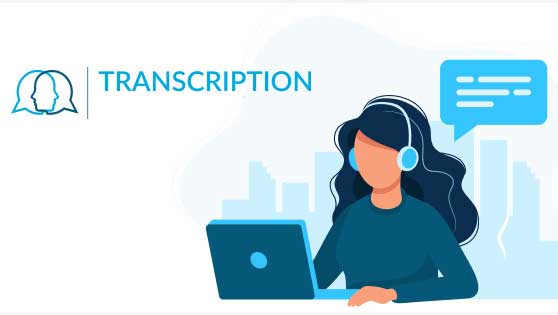OUTSOURCE DATA CONVERSION SERVICES
Data Conversion Services: Transforming Information for Enhanced Digital Efficiency:
In today’s rapidly evolving digital landscape, data is at the core of business decision-making, strategy, and operations. Managing and converting this data efficiently is crucial for businesses seeking to optimize their workflows and ensure data integrity.
Data Conversion Services play a significant role in this process, helping organizations convert, format, and manage their data to align with their specific requirements.
Data Conversion Services encompass a wide range of solutions including document conversion, digital data transformation, data migration, and data digitization. Let’s explore in detail how these services can empower businesses and why outsourcing data conversion is a strategic decision.
What are Data Conversion Services?
Data Conversion Services involve transforming data from one format to another to improve its usability, compatibility, and accessibility. This process includes converting data from paper-based formats to digital forms, changing digital files from one type to another, and restructuring data to fit new databases or systems.
The goal is to make data more accessible and manageable, ensuring that businesses can extract actionable insights from their information assets.
Some common forms of conversion include:
- Document Conversion Services: Transforming physical documents into digital formats like PDF, Word, or Excel.
- Digital Data Conversion: Converting legacy data stored in outdated formats into modern digital formats.
- PDF to Word Conversion: Transforming PDF files into editable Word documents for ease of editing and collaboration.
- XML Data Conversion: Converting data into XML format, which is widely used for web and application data management.
Key Benefits of Data Conversion Services:
Here are some key advantages of why investing in conversion services are essential for businesses:
- Enhanced Data Accessibility: Conversion ensures that your information is stored in accessible digital formats. This means quicker access, easier sharing, and better data management. For example, converting physical documents into searchable PDF or Word files can drastically improve information retrieval times.
- Improved Data Accuracy: Manual data entry is prone to errors, which can compromise the integrity of your data. Automated data conversion services reduce human error, ensuring higher data accuracy and consistency.
- Cost Efficiency: Outsourcing Data Conversion Services can lead to significant cost savings. By leveraging external expertise, businesses can avoid the expenses associated with in-house data management infrastructure, tools, and labor.
- Enhanced Security: Professional conversion providers implement robust data protection protocols to safeguard sensitive information during the conversion process. This is particularly critical when dealing with financial, legal, or healthcare data.
- Data Integration and Compatibility: Conversion facilitates the integration of disparate data sources, making it easier to consolidate information from various departments or legacy systems. This is crucial for data migration projects, where data needs to be transferred between systems without compatibility issues.
Types of Data Conversion Services:
Let’s dive deeper into various conversion services and their applications:
1. Document Conversion Services:
Document conversion involves converting physical files into digital formats. It includes scanning, OCR (Optical Character Recognition), and data extraction processes. Popular conversions include PDF to Word, PDF to Excel, and Image to Text.
- PDF to Excel Conversion: Ideal for extracting data from invoices, receipts, or financial reports into Excel sheets for analysis.
- Data Entry and Conversion: Manually entering data from paper forms into digital databases to preserve data accuracy.
2. Digital Data Conversion:
This service focuses on transforming legacy digital formats into modern, standardized formats that can be easily managed and analyzed. It includes:
- XML Data Conversion: Ensuring that your data is stored in a structured XML format for better web compatibility.
- Automated Data Conversion: Utilizing software tools to convert large volumes of data with speed and accuracy.
- Cloud Data Conversion: Converting data to formats that are compatible with cloud storage solutions for better scalability.
3. Data Migration Services:
Data migration is essential when upgrading or switching to new systems. It involves the transfer of data from one system to another while ensuring data integrity. Key services include:
- Database Conversion Services: Transferring data from one database format to another (e.g., Oracle to SQL Server).
- Bulk Data Conversion: Handling large-scale data migration projects for enterprises, ensuring minimal downtime and data loss.
4. Data Digitization Services:
The process of converting physical records into digital formats to preserve data and streamline processes. Services include:
- Scanning and Conversion Services: Scanning paper documents and converting them into digital formats.
- Data Transformation Services: Reformatting data to ensure consistency across different digital platforms.
Outsourcing Data Conversion: A Smart Business Move:
Outsourcing data conversion services to specialized providers can be a game-changer for businesses. Here’s why:
- Expertise and Experience: Professional data conversion software services companies bring years of experience and specialized knowledge to the table. This ensures high-quality conversions with minimal errors.
- Access to Advanced Tools: Conversion requires sophisticated software tools and technologies. Outsourcing allows businesses to leverage these tools without investing in costly infrastructure.
- Scalability: Outsourcing offers the flexibility to scale conversion projects up or down based on your business needs. This is especially beneficial for companies with fluctuating data volumes.
- Focus on Core Business Activities: By delegating conversion tasks to external experts, businesses can focus on their core competencies, driving growth and innovation.
Industry Applications of Data Conversion Services:
Conversion is not limited to a specific industry; it is a critical requirement across various sectors:
- Healthcare: Converting patient records from paper to electronic health records (EHR) to improve patient care and comply with regulations.
- Legal: Transforming legal documents, case files, and contracts into digital formats for better management and retrieval.
- Finance: Automating data entry and conversion for financial reports, invoices, and transaction records.
- Real Estate: Digitizing property records, blueprints, and other real estate documents for better organization and access.
- Education: Converting academic records, research papers, and course materials into digital formats.
Tools and Technologies Used in Data Conversion:
Modern data relies on various advanced tools and technologies, including:
- Optical Character Recognition (OCR): Used for extracting text from images or scanned documents.
- Automated Data Conversion Software: These tools use AI and machine learning to convert data with high accuracy.
- Cloud-based Data Solutions: Facilitating secure conversion and storage in the cloud.
How to Choose the Right Data Cleansing Service Provider?
- Selecting the right data hygiene services provider is crucial for the success of your data management strategy. Consider the following factors:
- Industry Experience: Choose a provider with experience in your industry to ensure they understand your data requirements.
- Scalability: Ensure the service can handle your current data volume and scale as your business grows.
- Data Security: Look for providers that prioritize data security and compliance with data protection regulations.
- Customizable Solutions: Opt for services that offer customizable solutions tailored to your specific needs.
- Support and Maintenance: A reliable support system is essential for ongoing data management and troubleshooting.
Future Trends in Data Conversion Services
The future of conversion is shaped by technological advancements and evolving business needs. Here are some key trends:
- AI and Automation: The use of AI in conversion is expected to grow, making the process faster and more accurate. Automated tools can handle large datasets with minimal human intervention.
- Cloud Integration: As more businesses move to the cloud, large scale data conversion services will focus on ensuring data compatibility with cloud environments. Cloud data conversion ensures seamless integration and data accessibility.
- Focus on Data Security: With increasing data breaches, businesses are prioritizing secure practices. Encryption, secure file transfer protocols, and compliance with data protection regulations will be essential.
Case Studies: Real-World Examples of Data Conversion Success
To highlight the transformative power of conversion, let’s explore some real-world case studies.
Case Study 1: Streamlining Document Management for a Healthcare Provider
Client: A leading healthcare provider with multiple clinics.
Challenge: The client faced challenges managing thousands of paper-based patient records. Accessing patient information was time-consuming, leading to delays in service.
Solution: The client outsourced their digital file conversion needs to a professional service provider specializing in Document Conversion Services. Using high-speed scanners and OCR technology, the provider converted all paper records into digital, searchable PDFs.
Results:
- Reduced patient wait times by 30% due to faster access to records.
- Improved compliance with healthcare regulations.
- Achieved significant cost savings on physical storage space.
Case Study 2: Enhancing Marketing Efforts with Digital Data Conversion
Client: A global e-commerce retailer.
Challenge: The retailer had vast amounts of customer data in various formats that were not standardized, leading to inefficient marketing campaigns.
Solution: The company utilized Digital Data Conversion Services to standardize customer data. Data from multiple sources (emails, social media, and CRM) were converted into a unified format, allowing for better segmentation and targeted marketing.
Results:
- Increased marketing campaign ROI by 40%.
- Enhanced customer engagement through personalized marketing.
- Streamlined data analytics, leading to more effective business decisions.
Choosing the Right Data Conversion Partner:
When selecting a conversion service provider, consider the following factors:
- Experience and Expertise: Look for providers with a proven track record in handling document data conversion projects similar to yours.
- Data Security: Ensure the provider follows strict data security protocols to protect sensitive information.
- Scalability: Choose a partner who can scale their services to meet your growing data needs.
- Cost-effectiveness: Compare pricing models to find a service that fits your budget without compromising on quality.
Future-Proofing Your Business with Efficient Data Conversion Solutions:
Our services are integral to modern business operations. Whether it’s converting documents, digitizing records, or migrating data to new systems, efficient scanning and conversion services ensures that your information is organized, accessible, and ready for analysis. By outsourcing these services to experts, businesses can save time, reduce costs, and focus on their core operations.
In an era where data is the new currency, leveraging professional data formatting services can give your business a competitive edge. Whether you need document conversion, data migration, or digital transformation, a strategic approach to OCT data conversion will ensure that your business remains agile, efficient, and ready to capitalize on new opportunities.

What Exactly Are Data Conversion Services, and How Can They Benefit My Business?
Data Conversion Services involve transforming data from one format to another, making it easier to use with current software systems. For example, converting paper documents into digital formats or updating old file types into modern, more accessible ones. These services benefit businesses by improving data accessibility, streamlining operations, enhancing decision-making, and ensuring data is compatible with newer technologies.
Why Should I Outsource Data Conversion Instead of Handling It In-House?
Outsourcing data conversion saves time and resources by leveraging specialized expertise and technology that might not be available in-house. It also reduces the risk of errors, ensures data accuracy, and can handle large volumes of data more efficiently. Plus, professional service providers often have strict data security measures in place, protecting sensitive information better than in-house efforts.
How Much Will Data Conversion Services Cost?
The cost of data conversion varies based on several factors, including the complexity of the data, volume, format type, and specific requirements like data cleansing or integration. Many service providers offer customizable pricing plans or quotes based on your project’s needs, so it’s best to request a detailed estimate to understand the cost.
How Do I Know My Data Will Be Safe During the Conversion Process?
Professional data conversion service providers prioritize data security by using advanced encryption, secure transfer protocols, and compliance with data protection laws (such as GDPR or HIPAA). Always ensure your chosen provider has clear data privacy policies and certifications to safeguard your information.
What Types of Data Can Be Converted? Can You Handle My Industry-Specific Needs?
Yes, most data conversion services can handle a wide range of data types and industry-specific requirements. This includes converting documents, spreadsheets, databases, images, medical records, legal documents, and financial reports. If you have specialized data, such as CAD drawings for engineering or EMR files for healthcare, reputable providers can tailor their services to fit your needs.
How Long Does the Data Conversion Process Take?
The time required for data conversion depends on the size and complexity of your project. Simple conversions may take a few days, while larger projects involving extensive data cleanup, formatting, or integration can take weeks to months. Your provider should offer a timeline estimate based on an initial assessment of your data.
Can You Convert Data from Legacy Systems?
Yes, data conversion services can handle data migration from outdated or legacy systems to modern platforms. This includes converting databases, software files, or older formats that are no longer supported by current technologies. This process helps you modernize your infrastructure without losing historical data.
Will My Converted Data Be Compatible with My Current Systems?
Absolutely. One of the primary goals of data conversion is to ensure that your data is fully compatible with your existing systems. Providers typically work closely with you to understand your software environment and requirements, ensuring the converted data integrates seamlessly with your business operations.
What If I Need to Convert Large Volumes of Data Quickly?
Most professional data conversion service providers have the capacity to handle large volumes of data within tight deadlines. They use automated tools, AI, and batch processing techniques to accelerate the conversion process without compromising on quality. Be sure to discuss your timeline requirements upfront to confirm their ability to meet your needs.
How Accurate Will the Converted Data Be?
Professional data conversion services are designed to maintain the highest levels of data accuracy. They use automated verification tools and manual quality checks to ensure the converted data matches the original with high precision. However, you should discuss accuracy benchmarks and quality assurance measures with your provider before starting the project.


















